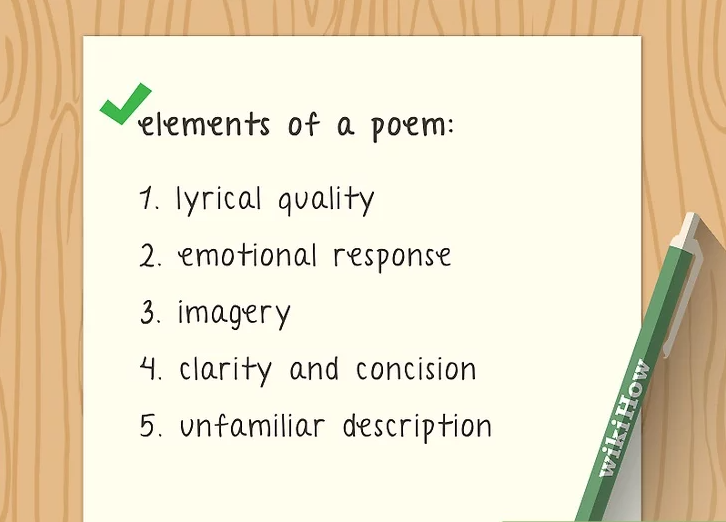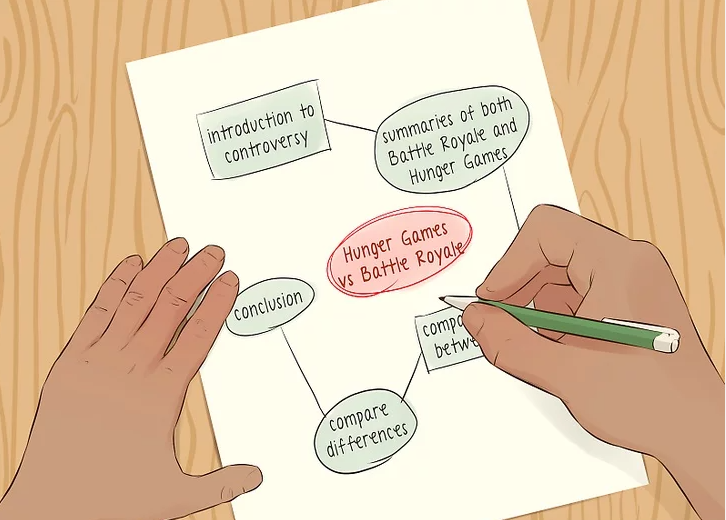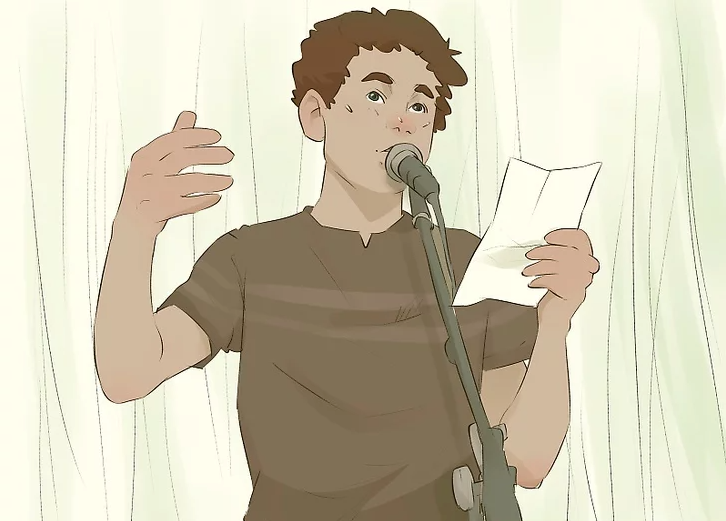您的购物车目前是空的!
How to Be a Creative Writer
Creative writing is an enjoyable and fulfilling pursuit that can grow into a hobby, an academic discipline, or even a professional career. Anyone has the potential to become a creative writer—all it takes is imagination, strong ideas, a solid command of language, and an understanding of literary structure. By reading widely and practicing regularly, you can develop into a skilled and versatile writer within your chosen field.
Part1 Becoming a Writer

1. Read extensively
Reading is the foundation of becoming a great writer. The best writers are avid readers who not only enjoy the story but also pay attention to how the author structures and crafts the narrative. By reading widely, you study how published authors use language in creative and inspiring ways, and you may discover new ideas for your own work. Reading in the same genre you wish to write in will also sharpen your sense of style and audience expectations.
📚 Subtopic: Learn from Reading
- Observe how stories are structured.
- Notice the author’s choice of words, pacing, and tone.
- Draw inspiration for your own writing projects.
🔗 Further reading: Why Reading Improves Your Writing

2. Think about pursuing writing in college
While you don’t need a college degree to become a writer, taking writing courses can provide valuable feedback and exposure to diverse authors and genres. Many colleges offer creative writing majors, minors, or workshops within English departments. Some schools also provide opportunities like literary clubs, guest author readings, or student-run journals.
🎓 Subtopic: Explore Writing Programs
- Check course catalogs for creative writing classes.
- Explore whether a school emphasizes poetry, fiction, nonfiction, or screenwriting.
- Attend campus readings or join literary organizations.
🔗 Resource: Association of Writers & Writing Programs (AWP)

3. Consider getting an MFA degree
An MFA in creative writing isn’t required, but it can be transformative. These programs provide intensive practice, community, and mentorship from established writers. You’ll also gain time to refine your craft while receiving consistent feedback. However, MFAs can be costly, so research scholarships, grants, and teaching opportunities.
🎭 Subtopic: The MFA Experience
- Build connections with other dedicated writers.
- Gain focused time to practice and improve your writing.
- Explore funding options before committing.
🔗 Program search: Poets & Writers MFA Database

4. Take a continuing education class
If formal degrees aren’t your path, you can still benefit from writing workshops, both online and in-person. These classes range from beginner to advanced and are often taught by published authors. Online options like MOOCs (Massive Open Online Courses) make writing education accessible and affordable.
🖊 Subtopic: Flexible Learning
- Decide if you prefer classroom or online learning.
- Check the instructor’s credentials.
- Explore free or low-cost MOOCs.
🔗 Explore: Coursera Writing Courses

5. Make writing a lifelong pursuit
No matter your path, the key is commitment. Writing requires discipline, curiosity, and resilience. Create a daily writing routine, even if it’s just one hour. Network with fellow writers, join writing groups, and challenge yourself to experiment with new genres. The more you write, the more your unique voice will flourish.
🌟 Subtopic: Building a Writing Life
- Stick to a consistent writing schedule.
- Connect with other writers locally or online.
- Keep reading, exploring, and experimenting.
🔗 Find groups: Meetup Writing Communities
Part2 Mastering a Genre

1. Choose a genre or just focus on the story
Most writers settle into one primary genre, while others experiment with multiple. There is no right or wrong path—what matters is writing what you love. If you’re unsure, focus first on telling the story you want, and let the genre reveal itself naturally. Your target audience and story idea may also guide your choice. And remember, hybrid genres—like science-fiction romance or historical horror—are perfectly valid approaches.
🎭 Subtopic: Finding Your Genre
- Reflect on whether you lean toward poetry, fiction, or nonfiction.
- Consider your audience (children, young adults, or adults).
- Experiment with multiple genres before committing.
🔗 Explore genres: Writer’s Digest — Writing Genres

2. Learn the ins and outs of your genre
Once you’ve chosen a genre, immerse yourself in it. Read widely within that category, from both classics and contemporary voices, to understand style, structure, and conventions. Supplement your reading with craft books tailored to your genre—whether it’s fiction, nonfiction, or poetry. This knowledge will give you a strong foundation and help you develop your own voice within the genre.
📖 Subtopic: Master Your Craft
- Research influential works in your genre.
- Read authors with diverse styles and backgrounds.
- Study craft guides that teach genre-specific techniques.
🔗 Resource: Poets.org — Poetry Resources
🔗 Reference: The Elements of Style (Project Gutenberg)

3. Make time to write and stay on schedule
Writing is a discipline that improves with consistent practice. Set aside time daily, weekly, or at a pace that works for you, and commit to it. Some writers use word-count goals, while others simply protect a block of writing time. Progress doesn’t happen overnight, so be patient—your voice and skills will sharpen with steady effort.
⏰ Subtopic: Building a Routine
- Decide on a realistic writing schedule.
- Set goals (time-based or word-count-based).
- Eliminate distractions to focus fully on writing.
🔗 Guide: NaNoWriMo — Daily Writing Habit
Part3 Finding Inspiration

1. Keep a journal
Journals are a writer’s best friend. By observing people in coffee shops, bars, or on public transport, you capture fascinating slices of humanity that can inspire characters and stories. Writing things down immediately ensures that sudden insights or observations are never lost. A journal can be a vault of overheard conversations, quick sketches of ideas, or personal reflections, all of which make it easier to start writing when you sit down at your desk.
📝 Subtopic: Why Journaling Matters
- Record daily observations of people, places, and events.
- Use your journal to collect raw material for stories and poems.
- Treat it as a creative playground for experimenting with ideas.
🔗 Resource: Keeping a Writer’s Journal — Creative Writing Now

2. Compile a research file
Research files are invaluable resources for writers. Collecting notes, clippings, historical facts, or unusual expressions gives you a reservoir of material to draw from. Whether you’re working on historical fiction, poetry, or even experimental prose, research enriches your work with authenticity and depth. A good research file can be a combination of historical texts, newspaper articles, literary excerpts, and your own annotations.
📚 Subtopic: Building Your Resource Bank
- Gather texts, articles, and references that inspire you.
- Apply research beyond nonfiction—poets and novelists benefit too.
- Use your file as a “word bank” to discover new phrasings and imagery.
🔗 Reference: The Importance of Research in Creative Writing — Writer’s Digest

3. Try using writing prompts
Writing prompts are excellent tools for sparking creativity, defeating writer’s block, and keeping your writing muscles in shape. They provide structure while leaving room for imagination. You can buy books filled with prompts, borrow them from the library, or explore countless free ones online. Better yet, invent your own prompts with specific rules to challenge yourself—like writing a poem with certain required words or crafting a short story in under 500 words.
🎯 Subtopic: Generating Ideas with Prompts
- Explore online writing prompts for free practice.
- Buy or borrow prompt collections from bookstores and libraries.
- Create personal prompts with unique constraints for extra challenge.
🔗 Free resource: Writer’s Digest Writing Prompts
Part4 Writing Your First Work

1. Develop the necessary narrative components
Every narrative—fiction or nonfiction—needs key elements to engage readers. A strong central premise, dynamic characters, a confined story space, and a clear protagonist-antagonist relationship are crucial. Conflict drives the story, and change in characters ensures growth and depth. Remember, antagonists can be people, nature, time, or even inner struggles.
📖 Subtopic: Building Narrative Foundations
- Define a central premise (e.g., power corrupts or adversity strengthens).
- Create flawed, evolving characters.
- Ensure a clear protagonist and engaging antagonist.
- Maintain tension and meaningful conflict throughout.
🔗 Expert Tip: Lucy V. Hay, a professional writer, advises starting with a central concept to hook readers—like dinosaurs in Jurassic Park or personal struggle in The King’s Speech.
Read more from Lucy V. Hay

2. Work on the elements of a poem
If you’re writing poetry, focus less on narrative structure and more on sound, imagery, and emotion. A successful poem should have a lyrical rhythm, evoke powerful emotions, and present vivid imagery through symbolism, metaphors, and similes. Clarity and concision are essential—say as much as possible with as few words as possible.
🎼 Subtopic: Crafting Strong Poetry
- Use sound devices like alliteration, assonance, and meter.
- Evoke emotion through irony, tragedy, or modern expression.
- Employ striking imagery and unique descriptions.
- Prioritize clarity and conciseness.
🔗 Reference: The Poetry Foundation — Learning Lab

3. Write the first line
Your opening line sets the tone for the entire piece. Whether it’s a story, poem, or essay, the first line must hook the reader with tension, theme, or imagery. Strong beginnings can use aphorisms, facts, bold observations, or striking visuals that are developed later in the work.
✍️ Subtopic: Opening with Impact
- Start with an aphorism or universal truth.
- Present a concise but compelling fact.
- Use a deceptively complex observation.
- Craft an image that lingers in the reader’s mind.
🔗 Inspiration: 20 Great Opening Lines in Literature — Penguin Books

4. Outline your work
An outline serves as a roadmap for your writing. By sketching out the who, what, when, where, why, and how, you create a framework that prevents your narrative from spiraling. Outlines make it easier to expand your work into a draft while ensuring coherence and depth.
🗂 Subtopic: Why Outlining Helps Writers
- Write how you envision your work from beginning to end.
- Add more details than you need—it’s easier to cut later.
- Get to know your characters deeply, whether real or fictional.
🔗 Resource: How to Outline a Novel — Reedsy Guide

5. Develop a working draft
Your draft transforms your outline into a complete narrative. This version doesn’t have to be polished, but it should be fully fleshed out. A good draft has a clear protagonist, conflict, and resolution, with smooth transitions, engaging dialogue, and no unresolved gaps—unless left deliberately open for effect.
📝 Subtopic: Drafting with Purpose
- Ensure protagonist, antagonist, and conflict are clear.
- Build vivid, well-developed scenes.
- Tie up loose ends or explain unresolved threads.
- Maintain logical dialogue and smooth pacing.
🔗 Reference: Writing First Drafts — NaNoWriMo Resources

6. Revise and edit your writing
Revision is where your work truly shines. Editing corrects grammar, spelling, and syntax, but revision reimagines and strengthens content. You may need to cut sections you love for clarity or restructure the entire piece. Fresh eyes—your own after a break, or feedback from peers—are essential to catch overlooked gaps or weaknesses.
🔍 Subtopic: Perfecting Your Work
- Step away for days or weeks before revising.
- Seek feedback from trusted readers.
- Focus on phrasing, tone, and transitions.
- Ensure your premise is clear and fully expressed.
🔗 Resource: Editing vs. Revising — Purdue OWL
Part5 Sharing Your Work

1. Show your writing to friends
Sharing your polished work with close friends or family is a safe first step before publishing. By starting small, you limit exposure and can make necessary edits without damaging relationships. If your writing includes personal details, consider changing names or clarifying that the perspective is your own or fictional. Respect requests from friends or relatives to omit sensitive material.
🔎 Subtopic: Safe First Readers
- Begin with a small, trusted circle.
- Clarify your perspective vs. reality.
- Change names if necessary to avoid offense.
- Respect others’ privacy if they ask for edits.
📖 Reference: Writer’s Digest — Getting Feedback on Your Writing

2. Attend literary events and open mic nights
Reading aloud at literary events or open mics helps you gain feedback and confidence. These gatherings are also a way to connect with other writers and audiences who appreciate creative work. Most towns have events regularly, and you don’t need to live in a major city to participate. Check online listings, local newspapers, or independent bookstores for opportunities.
🎤 Subtopic: Building Community Through Readings
- Perform at local open mics.
- Attend other authors’ readings.
- Use events for networking and growth.
- Search local event boards or bookstores.
📖 Resource: Poets & Writers — Literary Events Calendar

3. Join a writing club
Joining a writing group provides consistent feedback, accountability, and community. Clubs exist in schools, libraries, bookstores, or online platforms like Meetup. Weekly or monthly meetings offer the chance to share work, exchange ideas, and build long-term support systems.
🖋 Subtopic: Finding Writing Clubs
- Look for clubs in schools or universities.
- Explore bookstores and libraries.
- Try online platforms such as Meetup.
- Use social media to connect with writing communities.
📖 Reference: National Writing Project — Teacher & Community Networks

4. Consider getting an agent
If you’ve completed a book-length manuscript and want to reach large publishers, a literary agent can guide you. Agents help refine manuscripts, negotiate contracts, and market your work. Research authors in your genre, find their agents, and send tailored query letters. Keep queries short, professional, and error-free, highlighting why you chose that agent, summarizing your book, and sharing a short biography.
📑 Subtopic: The Querying Process
- Research agents who represent authors you admire.
- Personalize each query letter.
- Keep it under one page.
- Include a short book summary and your bio.
- Follow each agent’s submission requirements.
📖 Resource: QueryTracker — Find and Track Literary Agents

5. Find a publishing market that’s right for you
Different genres and styles fit into specific publishing markets. Literary journals and niche publications can provide your first credits, attract readers, and even catch the attention of agents. Study the style and content of journals by reading them in bookstores or online, then check their guidelines before submitting.
📰 Subtopic: Matching Your Work to Markets
- Define your audience and genre.
- Search for journals online by category (fiction, nonfiction, poetry).
- Visit indie bookstores for journal samples.
- Read submission guidelines carefully.
- Consider sending professional query letters first.
📖 Reference: Duotrope — Literary Market Listings

6. Send out your work for publication
Once you’ve chosen a market, carefully follow submission guidelines to make a professional impression. Pay attention to word count, formatting, and whether to include identifying information. Always keep copies of your manuscripts, and include self-addressed stamped envelopes if submitting by mail. Be patient with response times, which can range from days to months. Handle rejection with resilience, and keep submitting until your work finds a home.
📬 Subtopic: Submission Best Practices
- Match manuscript to journal specifications.
- Write a concise, respectful cover letter.
- Include contact info, genre, and a short bio.
- Track simultaneous submissions responsibly.
- Learn from rejections and keep submitting.
📖 Resource: Submittable — Submission Management Platform